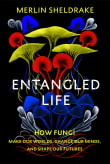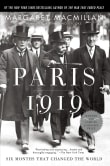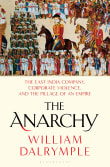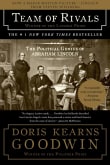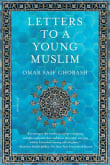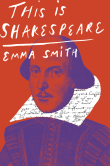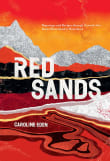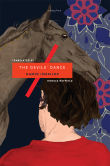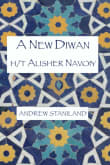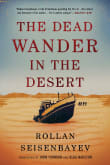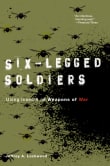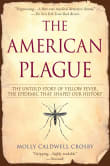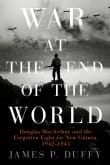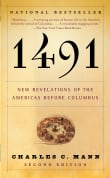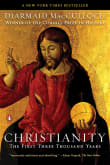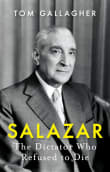The Silk Roads
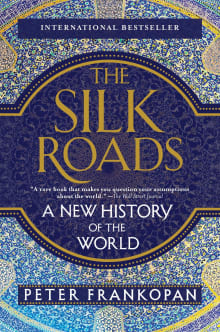
Book description
The No. 1 Sunday Times and international bestseller - a major reassessment of world history in light of the economic and political renaissance in the re-emerging east For centuries, fame and fortune was to be found in the west - in the New World of the Americas. Today, it is…
Why read it?
9 authors picked The Silk Roads as one of their favorite books. Why do they recommend it?

This book was a pertinent reminder of the prevailing yet misplaced, western-centric historical epicenter by realigning the map toward the East while providing a fresh, cosmopolitan perspective of our shared saga. Frankopan traverses the dynamic Eurasian Steppe and Silk Roads, which, for millennia, have connected and coupled people, products, pathogens, economies, armies, inventions, and ideas that shaped our global village.
From Timothy's list on challenge what you thought you knew about history.

A literate history of the economic and religious history of Europe, the Middle East, and adjacent Eursian steppes from fifth century B.C. down to the opening of the twenty-first century. I found the book a delight to read.
The first ten chapters are complementary to my work Empires of the Steppes. Professor Frankopan, however, continues the story to emergence of the global economy based on oceanic trade. The excellent analysis of colonial rivalries of the nineteenth and twentieth centuries is a must reading for understanding the geopolitical role of Eurasia today the Belt and Road initiative of China.
From Kenneth's list on how the nomadic peoples enriched and shaped civilizations across Eurasia.

Tired of Western-orientated histories of the world? Then take a trip along the Silk Road with Peter Frankopan.
His book is a captivating exploration of the history of the world but with its frame of reference centered in the great cities of the East, such as Baghdad or Peking, and, of course the Great Silk Road that linked much of the world in a single trade route that connected civilizations from East to West, facilitating the exchange of goods, ideas, and cultures.
He highlights the pivotal role the Silk Road played in shaping global history, from the rise and fall…
From Johnjoe's list on the big ideas that changed our world.
If you love The Silk Roads...

Even more than the oil curse, the location curse is key to understanding the Middle East. Peter Frankopan’s The Silk Roads is one of the best explorations of what imperial geographers identified as Eurasia, the ancient, much-fought-over land bridge between west and east running from the eastern Mediterranean to the Himalayas of which the modern construct of the “Middle East” is only one, sadly reduced part. Frankopan looks away from today’s association with regimes that are unstable, violent threats to international security and/or human rights, and popularly perceived as somehow peripheral to the interests of the West—to its historic center…
From Patricia's list on changing discussions about the modern Middle East.

From Zimler I learned even in the 18th and 19th centuries Portuguese zipped around the world. From Frankopan I learned this was going on much longer than that! Frankopan´s comprehensive history book is not only about Portugal, but it is more robust and expansive than the short book often mentioned, The First Global Village: How Portugal Changed the World by Martin Page. Both show Portugal as a fulcrum. All helped explain why Portugal is weird. I also recommend Frankopan's short sequel, The New Silk Roads, which clarifies the global power shifts happening now.
From Wendy's list on why Portugal is weird.

An enjoyable read from start to finish, Frankopan vividly describes the successive civilizations that arose in the Middle East, and which influenced the course of world history. As the chapters trace the rise of new technologies, sophisticated philosophies, and cultural refinements, it becomes apparent that he is subtly decentring our traditional view of world history. Europe, we realise, came late to the game, far behind the Assyrians, Byzantines, Sasanians, Abbasids, Mughals, and Persians, who could legitimately have regarded their societies as the centre of world civilization. And their successors, Frankopan argues, still play pivotal roles in global politics.
From Fernanda's list on making us rethink global history.
If you love Peter Frankopan...

This book is amazing. In addition to being encyclopedic in scope and detail, this highly readable "reference" book accounts for much of human history. Frankopan focuses on some two dozen 'roads'—some ancient, others recent, and several metaphorical 'roads' that were more historical processes than defined routes. He includes major historical events, but he also gives details that fill out and bring to life the greater stories. He begins with the role that the Silk Roads played on the history of silk, but those roads also were the basis of much of Eurasian history for millennia. This engrossing book is so…
From Robert's list on the history we never learned.

I, like many Brits, studied woefully little non-European history at school. Peter Frankopan’s Silk Roads is a revelation because it re-centres our understanding of global history, shifting the focus from Europe to Eurasia. By discussing the empires, people, trade, and ideas of the Silk Roads — and it is significant that he refers to these overland routes in the plural — Peter makes us reevaluate which events truly changed the course of history, and better appreciate why things are as they are in the world today. This book is available in illustrated and children’s editions, as well as in the…
From Sophie's list on to discover the Silk Road.

From Tom's list on navigating an unstable world.
Want books like The Silk Roads?
Our community of 12,000+ authors has personally recommended 81 books like The Silk Roads.


